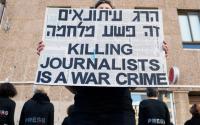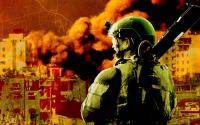Common Dreams / Published on Thursday, January 8, 2004 by the Guardian/UKJulian Borger
The Bush administration will today be accused of "systematically misrepresenting" the threat posed by "Iraq's weapons of mass destruction" in a comprehensive report on post-war findings.
The report, by four experts on weapons proliferation at the respected Carnegie Endowment for International Peace, is likely to re ignite calls for a commission to look into the government's pre-war intelligence claims.
According to the report, the absence of any imminent threat from Saddam Hussein's chemical or nuclear programs was "knowable" before the war. There was greater uncertainty over biological weapons but no evidence strong enough to justify war.
The authors say the intelligence reports of Iraq's capabilities grew more shrill in October 2002 with the publication of a National Intelligence Estimate (NIE), which included an unusual number of dissenting views by intelligence officials.
The intelligence community, the report says, began to be unduly influenced by policymakers' views "sometime in 2002". Repeated visits to the CIA by the US vice president, Dick Cheney, and demands by top officials to see unsubstantiated reports, created an atmosphere in which intelligence analysts were pressed to come to "more threatening" judgments of Iraq.
The report concludes that "administration officials systematically misrepresented the threat from Iraq's WMD and ballistic missile programs".
Last night a White House official responded by pointing to Mr Bush's comment on December 15 when he was pressed on the absence of Iraqi WMD. He claimed evidence had been found that contravened UN resolution 1441 calling for Saddam to disarm, a possible reference to signs that Iraq had been trying to extend the range of its missiles beyond UN limits.
Stuart Cohen, the vice chairman of the National Intelligence Council, which oversees intelligence assessments, also defended the 2002 NIE. "We did not, in any area, hype our judgments. We made our calls based on the evidence we had. We never used the word 'imminent' in the ... estimate."
But Joseph Cirincione, lead author of the Carnegie report, said: "This is the first thorough review of the intelligence threat assessments, administration statements, findings of UN inspectors and nine months of US searches in Iraq. It shows the threat assessment process is broken. The NIE was wildly off the mark."






